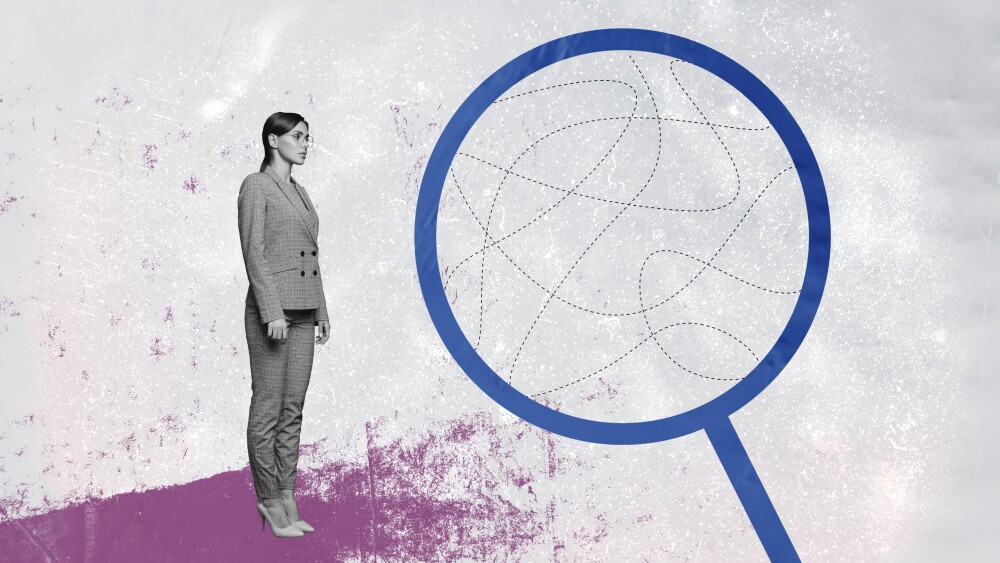Wuppertal, December 1st, 2016 - AiCuris Anti-infective Cures GmbH, a leading company in the discovery and development of drugs against infectious diseases, today announced that the first subject has been enrolled in a clinical phase 2 efficacy and safety study evaluating topical pritelivir, a small molecule helicase-primase inhibitor, for the treatment of recurrent labial herpes (cold sores), the most evident sign of herpes simplex virus type 1 (HSV-1). Topical pritelivir recently achieved the primary endpoint in a phase 1 trial with healthy volunteers and did not show any cumulative irritation potential. Pritelivir (oral) has already shown superiority against the standard of care, valaciclovir, in a phase 2 trial in patients with genital HSV-2 infections.
The study announced today is a double-blind, placebo and comparator controlled, phase 2 Proof-of-Concept trial (LipP 1) designed to investigate the efficacy and safety of pritelivir 5% ointment for the treatment of recurrent episodes of labial herpes in adults when applied for four days. Subjects will be randomly assigned to one of three treatment arms - pritelivir 5% ointment, placebo or Zovirax(R) Cream. The study is planned to include a total of 360 subjects at 10 sites in the U.S. Trial participants will initiate study treatment as soon as first symptoms of an episode of labial herpes occur by applying the study drug to the area of pain, tingling or lesion. The primary endpoint of the study is percentage of subjects with non-ulcerative lesions. First results from this study are expected for the second half of 2017.
"There is an unmet medical need to treat labial herpes, the painful mouth blisters and sores caused by herpes simplex virus 1 infections, as today there are only few specific antivirals available to treat the underlying disease and current topical treatments for these sores are often ineffective," said Dr. Holger Zimmermann, CEO of AiCuris Anti-infective Cures GmbH. "We have already seen promising results with oral pritelivir for the treatment of genital herpes and believe that pritelivir's innovative mode of action also holds promise for the treatment of labial herpes. Furthermore, topical pritelivir did not show any cumulative irritation potential in a phase 1 trial and we look forward to further developing this promising drug and seeing the efficacy and safety results of this new study during 2017."
About Pritelivir
Pritelivir is an innovative, highly active and specific inhibitor of herpes simplex virus (HSV). Derived from a novel chemical class (thiazolylamides), pritelivir is active against both types of herpes simplex virus (HSV-1 and HSV-2), causing labial and genital herpes, respectively, and retains activity against viruses which have become resistant to marketed drugs. Pritelivir has a mode of action that is distinct from other antiviral agents currently in use for treating HSV infections (i.e., the nucleoside analogs acyclovir and its prodrug valacyclovir as well as famciclovir, the prodrug of penciclovir). While nucleoside analogs terminate ongoing DNA chain elongation through inhibition of viral DNA polymerase, pritelivir prevents de novo synthesis of virus DNA through inhibition of the helicase-primase complex. In addition, it does not require activation within an HSV infected cell by viral thymidine kinase and is therefore also protective to uninfected cells. Currently the company is running two clinical development programs with pritelivir. The most advanced program, pritelivir (oral), showed superiority against standard treatment valacyclovir in a clinical phase 2 trial in patients with genital HSV-2 infection. Pritelivir (topical), designed for the treatment of recurrent labial herpes (mainly HSV-1), has just started a clinical phase 2 trial after reporting successful phase 1 clinical results.
About HSV
Herpes simplex viruses (HSV) are widespread (seroprevalence up to 100%, depending on geographic area and subpopulation), and are divided into herpes simplex virus type 1 (HSV-1) and type 2 (HSV-2). Infections lead to lifelong persistence of the virus, with frequent and sometimes painful recurrences. While HSV-1 predominantly causes oral lesions (cold sores), HSV-2 manifests in the genital region and is mainly sexually transmitted. In immunocompromised patients, HSV can lead to serious complications. The negative stigma associated with genital herpes and visible facial lesions may cause psychological distress.
According to the WHO an estimated 3.7 billion people worldwide under the age of 50, or 67% of the population, were infected with HSV-1 in 2012. Prevalence of the infection was estimated highest in Africa (87%) and lowest in the Americas (40-50%).
About AiCuris Anti-infective Cures GmbH
AiCuris was founded in 2006 as a spin-off from Bayer and focuses on the discovery and development of drugs against infectious diseases. The company's majority investor is SANTO Holding. The company is developing drugs for the treatment of viruses such as human cytomegalovirus (HCMV), herpes simplex virus (HSV), hepatitis B virus (HBV), and adenoviruses. In the field of antibacterials, AiCuris seeks to develop innovative treatment options for life-threatening, (multidrug)-resistant hospital-treated pathogens. In 2012, AiCuris signed a license agreement with Merck & Co (MSD), one of the largest agreements of its kind in the European biotech industry. The agreement covers the development and commercialization of novel drug candidates against HCMV. Letermovir, the most advanced compound under this agreement, recently met the primary endpoint in a pivotal phase 3 clinical trial in patients undergoing bone marrow transplantation.
The study announced today is a double-blind, placebo and comparator controlled, phase 2 Proof-of-Concept trial (LipP 1) designed to investigate the efficacy and safety of pritelivir 5% ointment for the treatment of recurrent episodes of labial herpes in adults when applied for four days. Subjects will be randomly assigned to one of three treatment arms - pritelivir 5% ointment, placebo or Zovirax(R) Cream. The study is planned to include a total of 360 subjects at 10 sites in the U.S. Trial participants will initiate study treatment as soon as first symptoms of an episode of labial herpes occur by applying the study drug to the area of pain, tingling or lesion. The primary endpoint of the study is percentage of subjects with non-ulcerative lesions. First results from this study are expected for the second half of 2017.
"There is an unmet medical need to treat labial herpes, the painful mouth blisters and sores caused by herpes simplex virus 1 infections, as today there are only few specific antivirals available to treat the underlying disease and current topical treatments for these sores are often ineffective," said Dr. Holger Zimmermann, CEO of AiCuris Anti-infective Cures GmbH. "We have already seen promising results with oral pritelivir for the treatment of genital herpes and believe that pritelivir's innovative mode of action also holds promise for the treatment of labial herpes. Furthermore, topical pritelivir did not show any cumulative irritation potential in a phase 1 trial and we look forward to further developing this promising drug and seeing the efficacy and safety results of this new study during 2017."
About Pritelivir
Pritelivir is an innovative, highly active and specific inhibitor of herpes simplex virus (HSV). Derived from a novel chemical class (thiazolylamides), pritelivir is active against both types of herpes simplex virus (HSV-1 and HSV-2), causing labial and genital herpes, respectively, and retains activity against viruses which have become resistant to marketed drugs. Pritelivir has a mode of action that is distinct from other antiviral agents currently in use for treating HSV infections (i.e., the nucleoside analogs acyclovir and its prodrug valacyclovir as well as famciclovir, the prodrug of penciclovir). While nucleoside analogs terminate ongoing DNA chain elongation through inhibition of viral DNA polymerase, pritelivir prevents de novo synthesis of virus DNA through inhibition of the helicase-primase complex. In addition, it does not require activation within an HSV infected cell by viral thymidine kinase and is therefore also protective to uninfected cells. Currently the company is running two clinical development programs with pritelivir. The most advanced program, pritelivir (oral), showed superiority against standard treatment valacyclovir in a clinical phase 2 trial in patients with genital HSV-2 infection. Pritelivir (topical), designed for the treatment of recurrent labial herpes (mainly HSV-1), has just started a clinical phase 2 trial after reporting successful phase 1 clinical results.
About HSV
Herpes simplex viruses (HSV) are widespread (seroprevalence up to 100%, depending on geographic area and subpopulation), and are divided into herpes simplex virus type 1 (HSV-1) and type 2 (HSV-2). Infections lead to lifelong persistence of the virus, with frequent and sometimes painful recurrences. While HSV-1 predominantly causes oral lesions (cold sores), HSV-2 manifests in the genital region and is mainly sexually transmitted. In immunocompromised patients, HSV can lead to serious complications. The negative stigma associated with genital herpes and visible facial lesions may cause psychological distress.
According to the WHO an estimated 3.7 billion people worldwide under the age of 50, or 67% of the population, were infected with HSV-1 in 2012. Prevalence of the infection was estimated highest in Africa (87%) and lowest in the Americas (40-50%).
About AiCuris Anti-infective Cures GmbH
AiCuris was founded in 2006 as a spin-off from Bayer and focuses on the discovery and development of drugs against infectious diseases. The company's majority investor is SANTO Holding. The company is developing drugs for the treatment of viruses such as human cytomegalovirus (HCMV), herpes simplex virus (HSV), hepatitis B virus (HBV), and adenoviruses. In the field of antibacterials, AiCuris seeks to develop innovative treatment options for life-threatening, (multidrug)-resistant hospital-treated pathogens. In 2012, AiCuris signed a license agreement with Merck & Co (MSD), one of the largest agreements of its kind in the European biotech industry. The agreement covers the development and commercialization of novel drug candidates against HCMV. Letermovir, the most advanced compound under this agreement, recently met the primary endpoint in a pivotal phase 3 clinical trial in patients undergoing bone marrow transplantation.




